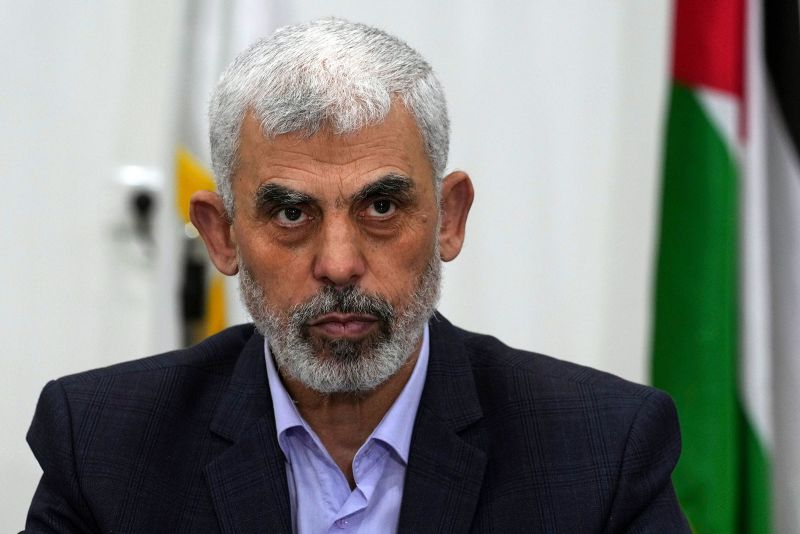
Unveiling the Enigmatic Yahya Sinwar: Unraveling the Secrets of Hamas’s Leader
In the heart of one of the world’s most contentious regions lies a man whose name has become synonymous with both hope and despair, resistance and ruthlessness. Yahya Sinwar, the leader of Hamas, is a figure whose mere mention invokes a myriad of emotions and opinions.
Born in 1962 to a refugee family in Khan Younis, a city in the Gaza Strip, Sinwar’s early years were marked by hardship and struggle. Growing up amidst the upheaval of the Israeli-Palestinian conflict, Sinwar witnessed firsthand the impact of occupation and oppression on his people. These formative experiences would shape his worldview and set him on a path towards activism and resistance.
Sinwar’s involvement with Hamas began in the late 1980s when he joined the organization’s military wing, the Izz ad-Din al-Qassam Brigades. Known for its armed resistance against Israeli forces, the Brigades provided Sinwar with a platform to channel his fervent beliefs and unwavering commitment to the Palestinian cause. Over the years, he rose through the ranks, gaining a reputation for his strategic acumen and uncompromising stance.
However, Sinwar’s journey has not been without controversy. Accused of overseeing brutal tactics and human rights abuses, he has been both lauded as a hero and condemned as a terrorist. His supporters view him as a valiant defender of Palestinian rights, while his critics label him a dangerous extremist. The dichotomy of Sinwar’s persona reflects the complex and multifaceted nature of the conflict in which he is embroiled.
Despite the polarized opinions surrounding him, Sinwar remains a pivotal figure in the Israeli-Palestinian conflict. As the leader of Hamas since 2017, he wields significant influence over the organization’s policies and actions. His leadership style, characterized by a hardline approach to resistance and a staunch refusal to compromise, has shaped Hamas’s trajectory and defined its role in the broader geopolitical landscape.
Sinwar’s tenure has been marked by both triumphs and challenges. Under his leadership, Hamas has continued its struggle against Israeli occupation, launching rockets and inciting clashes in a bid to assert Palestinian sovereignty. At the same time, the organization has faced backlash for its tactics, with accusations of terrorism and violence tarnishing its image on the international stage.
Looking ahead, the future remains uncertain for Yahya Sinwar and Hamas. As the Israeli-Palestinian conflict continues to simmer, Sinwar’s role in shaping its outcome will undoubtedly be a subject of intense scrutiny and debate. Whether he is viewed as a savior or a villain, one thing is certain: Yahya Sinwar has left an indelible mark on the turbulent landscape of the Middle East.
